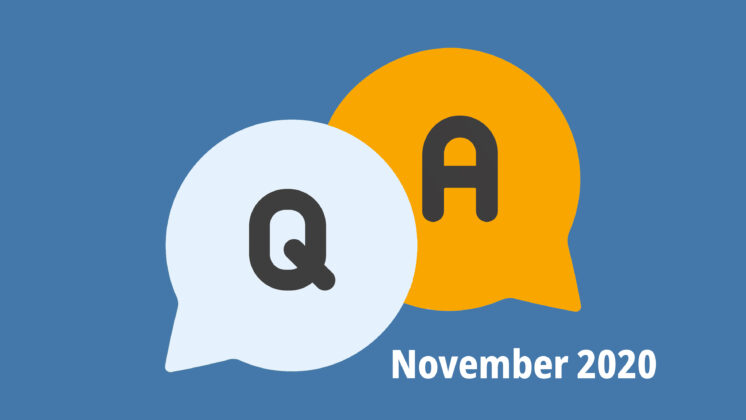Ever wondered what it’s like inside an MBA classroom? What kinds of questions do students ask? What kinds of answers do faculty members give?
Every month, we’ll share insights from top GLOBIS faculty to give you a peek behind the classroom doors of Japan’s No. 1 business school.
November 2020 Questions & Answers
Q: Isn’t finance just number crunching?
A: Some students assume they will concentrate on crunching numbers in search of the “right answer” in finance courses, which is not true! Rather, you are expected to use marketing concepts and analytical frameworks for a business environment in addition to finance concepts to better communicate your arguments.
If that seems strange, consider the process of how finance is used. First of all, we have to make sure the proposed project and/or M&A deal can contribute to enhancing corporate value to persuade top management, as well as shareholders. Then we need to verify that the project makes sense from an economical viewpoint—that’s where we need to crunch numbers. Finally, we combine the analysis both from qualitative and quantitative perspectives to make rational decisions.
In short, there is no story without numbers, nor are there numbers without a story!
―Masaru Hoshino, Essentials of Finance
Q: How can middle managers innovate when corporate culture doesn’t allow them to get involved?
A: I understand the frustration of middle managers. However, you don’t need to wait for the company to create an environment for you to innovate. You can start with your team.
The role of middle managers includes protecting their team from bureaucratic policies, complex procedures, and slow decision processes. New ideas are like newborn babies—they need to be protected. But even with the constraints the company puts in place, there are some things that you can try with the resources that you have. Pioneer new fields, experiment with your team members, and foster a new culture within your team.
When you start to deliver the results of your team’s experimental efforts, people will show interest in your activities. And from there, you can start convincing the company to change its corporate culture. Eventually, your team may even become a role model for changes in your organization.
So the best thing you can do is start experimenting with what you have right away.
―Tadahiro Wakasugi, Organizational Behavior and Leadership
Q: How do I know when I’ve found my kokorozashi?
A: A kokorozashi is a personal mission that unifies the passions and skills of a professional to create positive change in society. Naturally, that means it’s something very personal and subjective. You’re the only one who can tell when you’ve found it. You’ve got to listen to the voice inside yourself. Now, that voice can be hard to hear if your heart and mind are occupied with desires for fame, money, etc. The best way to amplify the voice is to take action and see what happens. In that regard, it’s a leap of faith, but it doesn’t have to be a giant leap. Rather, it’s better if it’s small. Just test the water. The risk is low, but the reward is great.
One tip is to do something that makes you feel authentic joy, then try to share your joy to benefit others. It may sound cheesy, but you need to listen to your heart, and that’s a skill. It’s a conscious thing, and you register it more as a feeling than as a sound. When you are taking action towards your kokorozashi, it feels good. You’ll feel calm excitement, subtle joy, and happiness.
In the beginning, you might just be working with a hypothesis for what your kokorozashi might be. That’s fine. The important thing is to repeat this process of try and see (or “try and hear”). Gradually, you will develop more confidence in the direction you are taking. Your feeling will become more like a belief.
But it does take time. Don’t expect quick results. Be patient and develop persistence. Gaining conviction in your kokorozashi comes with time. You will find out more as you get closer to the destination. So develop your perseverance, trust that it will come, and enjoy the journey.
―Kenya Yoshino, Leadership Development, Ethics, and Values
Want more GLOBIS MBA faculty insights? Click here for more Critical Questioning.



